Here’s the Marvel Character You’d Be, Based On Your Myers-Briggs® Personality Type
Many of us dream of becoming superheroes. Questions like, “If you could pick any superpower what would it be?” or “Which superhero would you be in real life?” can entertain us for hours.
While we might not be getting superpowers any time soon, we all have things in common with superpowered characters. There are characters from the Marvel universe of just about every personality type, and there’s a good chance you’ll be able to find at least one that you relate to.
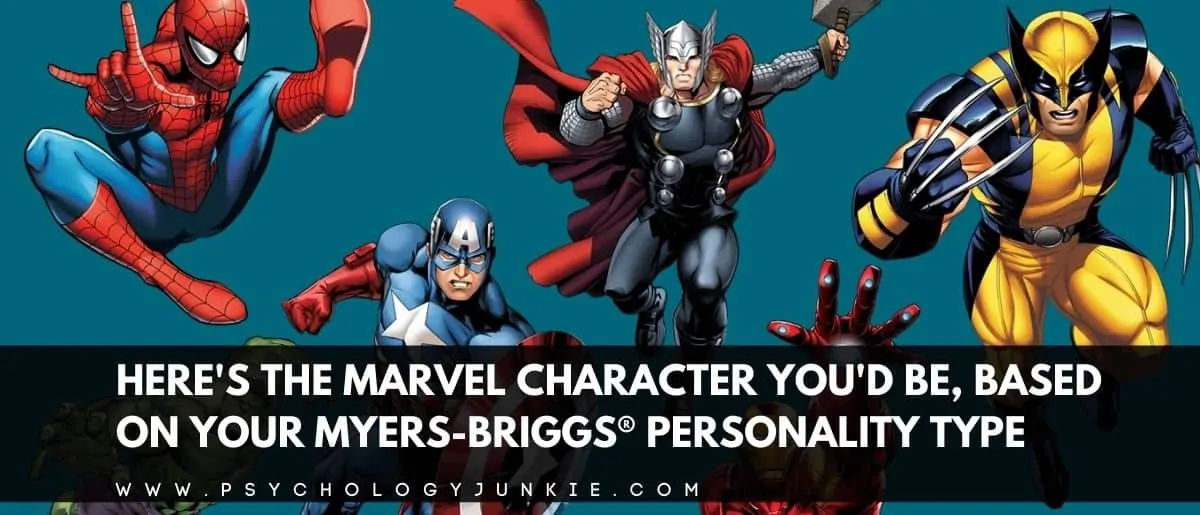
Full disclosure: I’m not much of a comic book reader myself (and the ones I do read are all Star Wars), so these typings are based almost exclusively on the characters as portrayed in the movies. For some characters, I also reference what other type enthusiasts who have read the comics have to say.
Not sure what your personality type is? Take our new personality questionnaire here. Or you can take the official MBTI® here.
Table of contents
- ENFJ – Charles Xavier/Professor X
- ENTJ – Max Eisenhardt/Erik Lehnsherr/Magneto
- INFJ – Susan Storm/Invisible Woman
- INTJ – Stephen Strange/Doctor Strange
- ENFP – Peter Parker/Spiderman
- ENTP – Tony Stark/Ironman
- INFP – Wanda Maximoff/Scarlet Witch
- INTP – Bruce Banner/The Hulk
- ESFJ – Ben Grimm/The Thing
- ESTJ – Nick Fury
- ISFJ – Steve Rogers/Captain America
- ISTJ – Okoye
- ESFP – Sam Wilson/Falcon
- ESTP – Thor
- ISFP – Scott Lang/Ant-Man
- ISTP – Natasha Romanova
Estimated reading time: 15 minutes
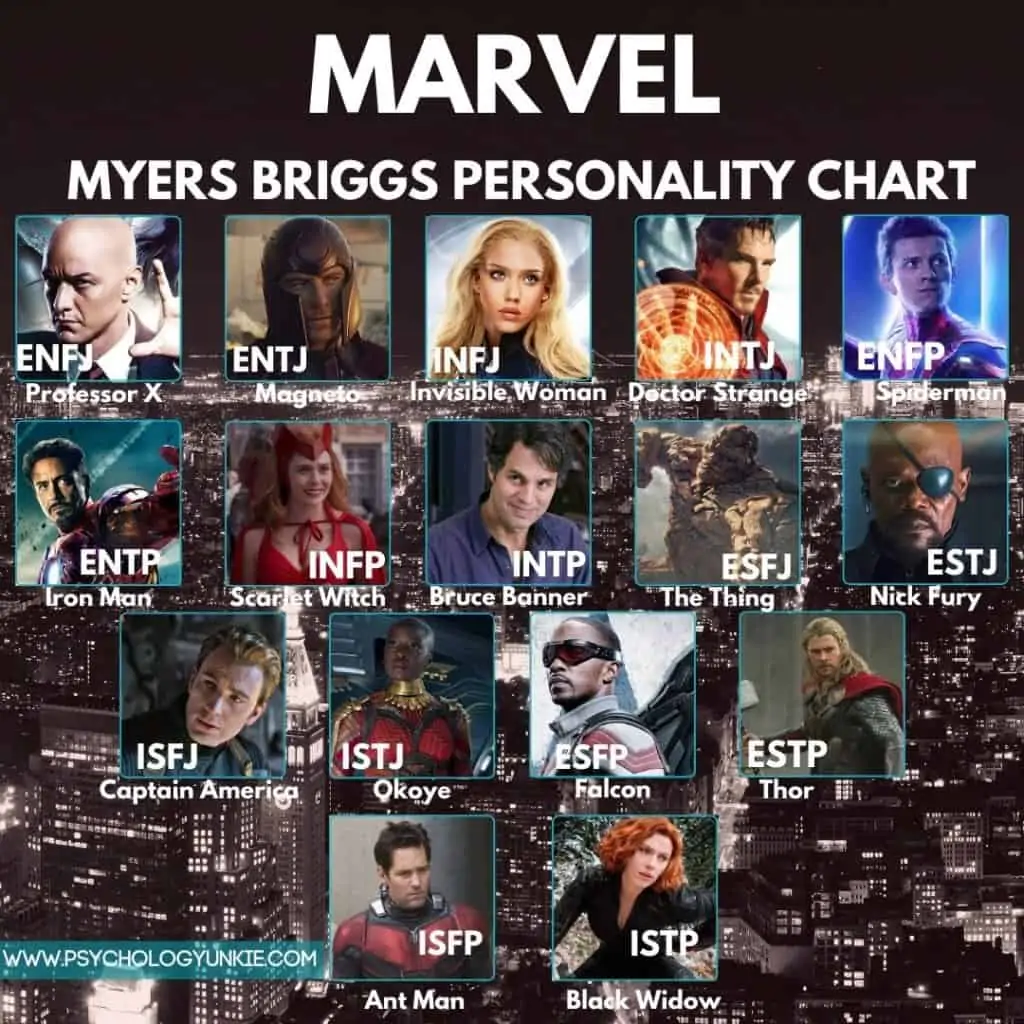
ENFJ – Charles Xavier/Professor X
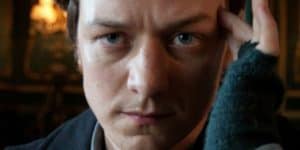
I’m pretty sure all NF types could find Professor X relatable for his idealism and his drive to help others, but in the film versions at least I type him as an ENFJ. Especially as a young man, Charles is very outgoing and friendly in social situations and prioritizes others’ well-being. He’s also more live-in-the-moment than the introverted NFs, partly a result of having Extroverted Sensing as his tertiary function.
In many ways, Xavier’s superpower is an extension of how NFJ minds naturally work. Extroverted Feeling is often linked to an ability to feel others’ emotions and Introverted Intuition works like advanced pattern-recognition software. Put those two together, and it’s almost like INFJs and ENFJs can read minds.
You might also relate to Nakia.
Read This Next: The Myers-Briggs® Types of the Star Wars Characters
ENTJ – Max Eisenhardt/Erik Lehnsherr/Magneto

I didn’t want to put villains on this list, but I think you can make a good case for Magneto as an anti-hero and he’s a great example of an ENTJ. An intensely logical visionary and inspiring leader, Magneto is driven by a vision of a future that’s better for people like him.
One of the markers of Thinking types is that they make decisions impersonally. While Magneto is clearly motivated to help people in his own way, he is also dispassionate enough to make tough calls to forward his cause. He’s also an Intuitive, which supports his Thinking side to make him a formidable strategist able to predict his enemy’s moves and plan how to bring them down.
You might also relate to Peggy Carter and Nick Fury.
INFJ – Susan Storm/Invisible Woman
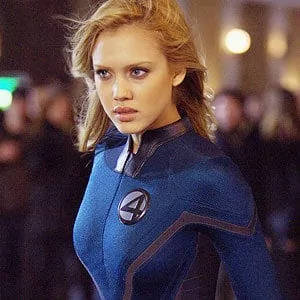
INFJ personality types tend to avoid the limelight, and it makes sense that we’d relate to one of the superheroes capable of turning invisible. Susan Storm is a warm, compassionate character who cares deeply about the people around her. She’s capable of seeing the big picture as well as of seeing things from other’s perspectives, and she uses those talents to help hold her team together.
Even though INFJs are great at connecting with others and care deeply about people, we’re also masters at putting up barriers that keep others from getting too close. This mirrors the Invisible Woman’s other superpower, which she uses in creative ways as a defensive and protective tool.
You might also relate to Loki, Jean Gray, and Groot.
Read This Next: 10 Fictional Characters You’ll Relate to if You’re an INFJ
INTJ – Stephen Strange/Doctor Strange
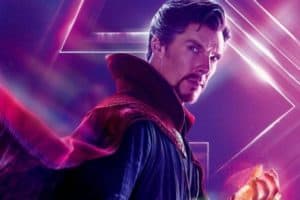
Many INTJs in fiction find themselves cast as villains, but in the Marvel universe we have a few examples of them playing heroes. Doctor Stephen Strange is one example of an INTJ who is incredibly confident in his role and his abilities as a surgeon and, eventually, as a sorcerer. I went with INTJ because I think Stephen’s drive to understand, learn, and explore possibilities indicates Introverted Intuition is his favorite function even though we get to see a lot of his Extroverted Thinking side.
When his accident removes everything he staked his identity on, we get to see a great example of an INTJ’s Extroverted Sensing stress response as he becomes obsessed with external data and develops an adversarial attitude toward the outer world. We also see glimpses of his tertiary Introverted Feeling when he acts based on his internal values.
You might also relate to Matthew Murdock.
Read This Next: 3 Weird and Wonderful Secrets About the INTJ
ENFP – Peter Parker/Spiderman

I had the hardest time finding an ENFP for this post. I’m still not convinced Spider Man qualifies but I do know of ENFPs who see him as a very relatable character, especially as portrayed by Tom Holland in the MCU films.
ENFPs tend to be intense, clever, lovable, and talkative. Especially when in the Spidey suit, the MCU version of Peter has a classic ENFP-esque personality, cracking jokes during the fights and suggesting it’d be so much nicer if we all stopped fighting and became friends.
You might also relate to Daisy Johnson/Quake.
ENTP – Tony Stark/Ironman
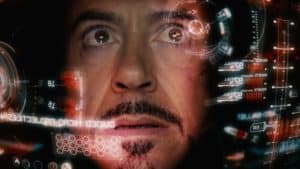
Few fictional characters represent a specific type more perfectly than Tony Stark does for ENTPs. The way Tony’s mind processes new information and arrives at decisions is a great example of ENTP mental functions.
Their dominant Extroverted Intuition helps them bounce from one idea to the next quickly and experiment with different possibilities. Auxiliary Introverted Thinking focuses on the purest, most accurate form of information. Couple that with tertiary Extroverted Feeling, which is good at reading other people, and you get the perfect type for an innovative, charismatic genius.
You might also relate to Shuri.
INFP – Wanda Maximoff/Scarlet Witch

If any superhero would have an ability to manipulate reality, I think it would be an NFP. Extroverted Intuition is all about exploring the outer world, generating possibilities in it, and seeing how it can be manipulated. Wanda’s character isn’t all that well-developed in the Marvel movies, but it seems to me she’s an INFP and I’ve read that the comic version is as well.
Like many INFPs, Wanda is a creative and unique individual with strong personal values. She has the sort of perspective needed to understand other people no matter how strange they are. She uses her personality traits and her superpowers to stand up for what she thinks is right and to connect with others who share her values.
You might also relate to Mantis.
INTP – Bruce Banner/The Hulk
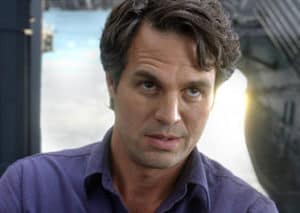
Absent-minded professor is one of the most common INTP stereotypes, and Bruce Banner is a great fictional example. Like many INTPs, Dr. Banner is an introspective troubleshooter who follows an internal set of rules, which he refines based on new information and experiences. He’s not so tied to tradition, scientific or social, that he isn’t willing to step outside the rules in order to come up with innovative solutions and inventions.
I find it fitting that an INTP’s less-developed function that shows up when under stress is Extroverted Feeling. Personality Hacker calls our inferior function the “3-year-old” process because it’s not very mature, and it’s interesting to think of The Hulk as an expression of Bruce’s unexpressed Extroverted Feeling side.
You might also relate to Jessica Jones, Reed Richards/Mr. Fantastic, Peter Parker/Spiderman.
ESFJ – Ben Grimm/The Thing
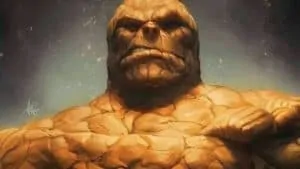
Even with an alter-ego who’s an incredibly strong superhero, Ben Grimm is still one of the sweetest and most trustworthy characters out there. He has an SJ type’s commitment to duty, family, and protecting others, providing a great example of why David Keirsey called them Guardian types.
Like other FJ types, Ben is committed to maintaining harmony within groups (which helps explain why he puts up with Johnny so well and why he keeps forgiving Reed over and over again). ESFJs are often stereotyped as “mom characters,” so it’s not all that surprising to see him switch between cooking dinner in an apron to “it’s clobbering time” if anyone needs defending.
You might also relate to King T’Chaka and Foggy Nelson.
ESTJ – Nick Fury
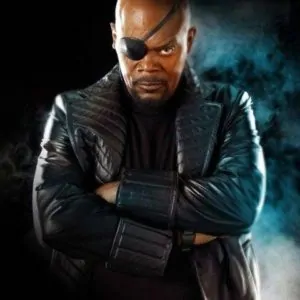
It was really hard for me to pick between ESTJ and ENTJ for Nick Fury, but I think the film version at least leans a bit more toward Sensing. Either way, Fury leads with a strong Extroverted Thinking function and he’s good at getting the job done efficiently. He has zero patience for people who make stupid decisions, and he has cultivated the power needed to go around them.
Fury is motivated to make the world a safer place, even if he has to do that in ways that upset other people. He is highly pragmatic and makes decisions based on what he has learned in the past, which is typical of ESTJs. He’s also concerned with the big picture and future security, which might be more typical of N-types but could be related to an ESTJ’s tertiary Extroverted Intuition.
You might also relate to Odin.
ISFJ – Steve Rogers/Captain America

Like many ISFJs, Steve starts out wanting to work within established authority structures. Again and again, he aligns himself on the side of law and order. It’s only when the authority structures fail to match what he knows is right that Steve stands up against them. He’s invested in making social systems work, but only so long as they’re helping people. He has a strong sense of right and wrong, and he refuses to compromise when it comes to doing what’s right.
I also think ISFJs will identify with the hints we see of Steve’s sense of humor and his occasional puzzlement when he’s looking at the world around him. His quirks fit in well with what Isabel Meyers said about how an ISFJ’s view on the world “may be absurd, irreverent, touching, or hilarious, but never predictable because their way of sensing life is intensely individual” (Gifts Differing, p. 103).
You might also relate to Edwin Jarvis.
ISTJ – Okoye
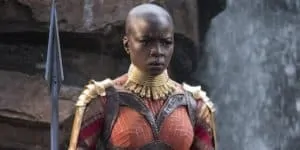
Okoye is an intensely loyal, no-nonsense character deeply motivated by what she believes is right. In the film Black Panther, we see Okoye as a fierce warrior who is firmly rooted in her people’s traditions. Like other SJ heroes, she acts to protect people and to support systems that she believes in.
As a Thinking type, the decisions she makes are primarily based on impersonal criteria (to the point that she states she could kill her husband “without question” for betraying Wakanda). With her tertiary Introverted Feeling, she softens this Thinking side just a bit by also aligning her decisions with what she firmly feels is right rather than blindly following the letter of the law.
You might also relate to Nebula and Pepper Potts.
ESFP – Sam Wilson/Falcon
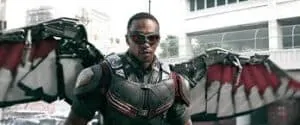
It might be a bit controversial to type Sam Wilson as an ESFP because he doesn’t quite fit the stereotype of the fun-loving performer. However, the more I think about it the more I think he’s a great example of a healthy and emotionally stable ESFP. Like other SP types, Sam is quick to adapt to the changing, unpredictable realities of the present moment (the neuroscience behind this is really cool—brain scans show that Extroverted Sensing types’ brains fire in a “tennis hop” pattern that lets them react quickly).
We also get to see quite a bit of his other extroverted function, an ESFP’s tertiary Extroverted Thinking. He relies on it quite a bit (possibly more than the typical ESFP), effortlessly blending his Sensing and Thinking sides to deal with reality straightforwardly and efficiently. Thinking isn’t what he bases his decisions on, though. That’s Introverted Feeling, which prompts him to stick with what he believes is right regardless of what other people say.
You might also relate to Peter Quill/Star Lord, Johnny Storm/Human Torch, and Carol Danvers/Captain Marvel.
ESTP – Thor
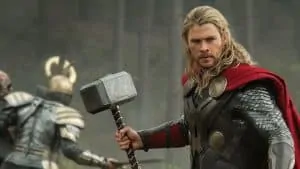
I love Thor’s character development in the Marvel Cinematic Universe. Early on, he’s defined 100% by Extroverted Sensing traits such as impressive physical skills, a live-in-the-moment focus, and a disregard of future concerns. Then, as the films continue, he learns to balance that with auxiliary Introverted Thinking, becoming better at analyzing his own actions and making strategic decisions.
He also learns to use his tertiary Extroverted Feeling to connect with other people and (to a certain extent at least) see things from their perspective. We even get to see him spiral into the “grip” of his inferior Introverted Intuition when under extreme stress. ESTPs tend to bounce back quickly from grip experiences, but until they do many withdraw, feel overwhelmed and confused about the future, and start to act paranoid and irritable like Thor does in Endgame.
You might also relate to James Buchanan “Bucky” Barnes and Howard Stark.
ISFP – Scott Lang/Ant-Man
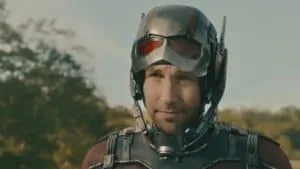
Like many ISP action heroes, Scott Lang excels at coordinating sensory details and using his past experience and knowledge to tackle new problems. He possesses the hands-on skills typically shared by SP types, such as the ability to burgle houses in impressive fashion even before having the Ant-Man suit. He’s also trained as an electrical engineer and we see him doing skilled hands-on work throughout the film.
Unlike TP types, Scott tends to make decisions based on what he feels is right rather than on logical, impersonal reasoning. He’s not at all hesitant to share or talk about feelings, though since that side of his personality is introverted he’s not always very in-tune with how others will respond.
You might also relate to T’Challa/Black Panther.
ISTP – Natasha Romanova
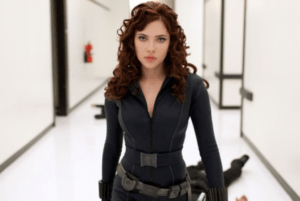
It can be hard to separate which parts of Natasha’s personality come from her Black Widow training and which from her psychological type. Still, it seems to me that dominant Introverted Thinking and auxiliary Extroverted Sensing are the functions on display in her instinctive ability to make logical, in-the-moment decisions and take decisive tactical action.
Like many other ISTPS, Natasha has developed a particular skill set that she’s insanely good at. She also uses those skills based on a very personal code; one that doesn’t always make sense to other people but which she sticks to regardless of their opinions.
You might also relate to Clint Barton/Hawkeye and Logan/Wolverine.
What Do You Think?
What do you think of this list? Any characters you’d like to add? Let’s discuss in the comments! You can discover more about your personality type in the eBook, Discovering You: Unlocking the Power of Personality Type.
About the Author:

Marissa Baker is the author of The INFJ Handbook (available in the Amazon Kindle Store). You can find her online at LikeAnAnchor.com where she blogs about personal growth and development from a Christian perspective.
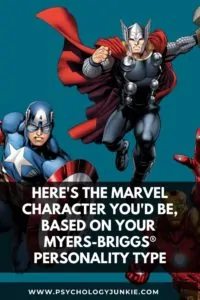



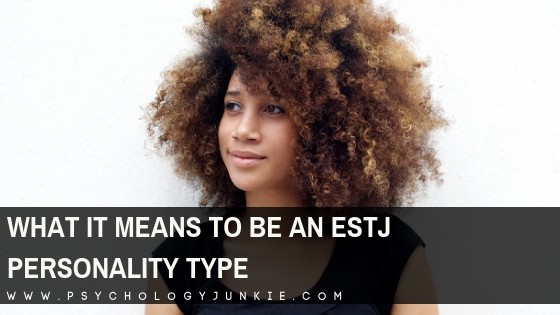




Several of these are incorrect. King T’Challa, for example, is INFP, not ISFP.
This was fun, even though I am not as deeply into Marvel as some. I like the posts with the character comparisons and had to look up all the types in my family. I like Spiderman, so he was relatable as an ENFP. I’m an INFP, but I’m not really familiar with the Scarlet Witch character.
Fun post! As an ENFP myself I relate to Spider-Man the most out of the super hero’s.
Oh my! Susan Storm, one of our authors, here, is an INFJ Marvel character! 😀
Is this a coincidence?
Accurate.
~ISTP
Saw your title of this recent document and before I opened the file, I knew what the answer was going to be for me. Strange is, as Strange does.
Interesting!
As an INFP, I always thought of myself as Spiderman, because I’m super quiet in everyday life, but my moral values run really deep.. so whenever I put on my Spidey suit, I have a different, more outgoing personality.
Well, I don’t know who Invisible Woman is, but I do relate to Loki
I am an entp and I feel like you were exactly write
As an INFJ I laughed out loud to my superhero, because… I have said that my entire life. I have ALWAYS wanted to be invisible. So Accurate!